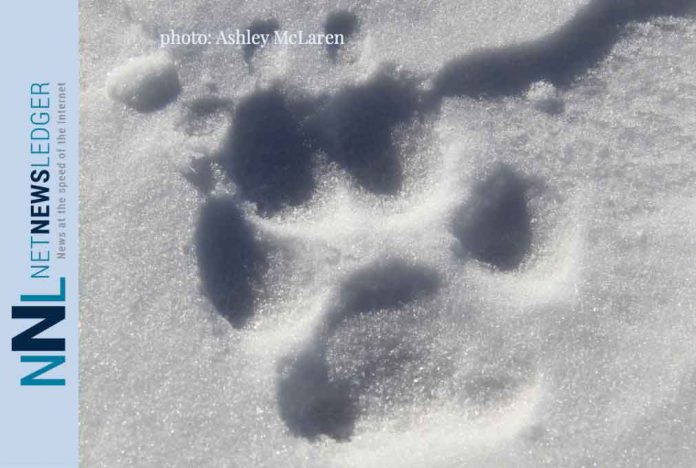HOUGHTON, MICH – Seven Canadian wolves, 3 females and 4 males, were translocated to Isle Royale National Park over the weekend by the Ontario Ministry of Natural Resources and Forestry (OMNRF) and the National Park Service (NPS). Fundraising by the National Parks of Lake Superior Foundation (NPLSF) and International Wolf Center (IWC ) allowed the agencies to move six wolves from Michipicoten Island Provincial Park where they have run out of caribou, their only large prey before ice and wolf health deteriorated such that successful translocation would not be possible. Additionally, a black wolf was translocated from the Ontario mainland.
Donor funds allowed this operation to continue after bad weather exhausted planned funding. This added time allowed both agencies to better achieve their objectives. For the NPS, the first year’s objective was to translocate 8–10 wolves from the Lake Superior region to the remote island park, to increase the population and restore predation while providing for genetic diversity.
With this latest translocation effort, the population of wolves on Isle Royale is now 15. “This successful effort resulted in exceeding our first-year population goal while providing a buffer for potential losses. ” Superintendent Green said. “Importantly, we were able to maintain a balance of males and females.” The lack of an adequate food source and a hard winter caused the Michipicoten wolves to be in poor body condition, which we expect will improve due to the burgeoning moose population in their new home on Isle Royale. The black wolf was in the best condition of the seven released.
“All the GPS collars have sent location data from this past weekend. The wolves are adjusting to their new environment and finding food on the island, visiting carcass provisioning and old predation sites,” said Mark Romanski. “ The farthest movement so far was about 4 miles, by the black wolf who travelled southeast from the release site. The scent of the Michipicoten Island wolves may have motivated him to make this journey to avoid conflict.”
The National Park Service greatly appreciates the NPLSF and IWC for their efforts to make the project such a great success. Also, the commitment of the OMNRF was vital to the success of both Canadian translocation efforts.







